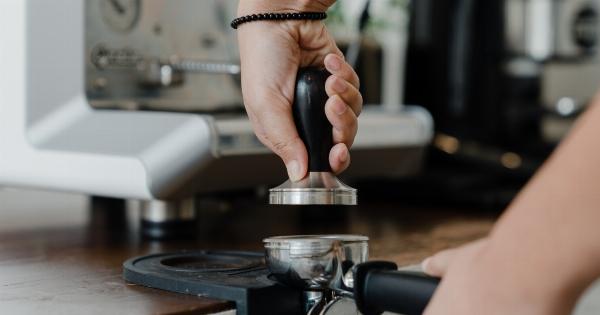One of the common questions that arise during pregnancy is whether it is safe to consume tea. Tea, especially herbal tea, is often associated with various health benefits.
However, when it comes to pregnancy, certain precautions need to be taken to ensure the well-being of both the mother and the unborn baby. In this article, we will discuss the safety aspects of drinking tea while pregnant and provide some guidelines to make an informed decision regarding tea consumption during this crucial time.
Understanding the types of tea
Tea is derived from the leaves of the Camellia sinensis plant and contains caffeine. However, the amount of caffeine and other components in tea varies depending on the type of tea and the duration of steeping. Here are some common types of tea:.
1. Green tea: Known for its antioxidant properties, green tea has a moderate amount of caffeine and is considered safe to consume in moderation during pregnancy.
2. Black tea: This type of tea is fully fermented and contains more caffeine compared to other teas. It is advisable to limit the consumption of black tea during pregnancy.
3. Herbal tea: Herbal teas, such as chamomile, peppermint, ginger, and raspberry leaf, are made from various plants, herbs, and spices.
These teas are naturally caffeine-free and can be a good choice for pregnant women, but caution should be exercised as some herbal teas may have medicinal properties.
Benefits of tea during pregnancy
When consumed in moderation and with appropriate caution, tea can offer certain benefits during pregnancy:.
1. Hydration: Staying hydrated is essential during pregnancy, and drinking non-caffeinated herbal teas can contribute to overall fluid intake.
2. Antioxidants: Some types of tea, especially green tea, are rich in antioxidants that can help reduce free radical damage in the body.
3. Morning sickness relief: Ginger tea, in particular, has been found to be effective in alleviating nausea and morning sickness symptoms.
4. Digestive aid: Peppermint tea has properties that can soothe an upset stomach and aid in digestion.
5. Relaxing effect: Certain herbal teas, like chamomile, can have a calming effect and promote relaxation, which can be beneficial during pregnancy.
Caffeine and pregnancy
One of the primary concerns when it comes to consuming tea during pregnancy is the caffeine content. High levels of caffeine intake have been associated with an increased risk of miscarriage and other adverse effects on fetal development.
Therefore, it is crucial to be mindful of the caffeine content in tea.
1. Recommended caffeine intake: The American College of Obstetricians and Gynecologists (ACOG) suggests limiting caffeine intake to 200 milligrams per day during pregnancy.
2. Caffeine content in tea: On average, an 8-ounce cup of green tea contains approximately 28 milligrams of caffeine, while the same amount of black tea contains around 47 milligrams.
However, it is essential to note that these values can vary depending on the brand and preparation method.
3. Impact on pregnancy: Excessive caffeine consumption has been associated with an increased risk of preterm birth, low birth weight, and developmental delays.
Therefore, it is advisable to monitor and limit the intake of caffeinated beverages, including tea, during pregnancy.
Choosing and preparing tea during pregnancy
When opting for tea during pregnancy, several factors need to be considered:.
1. Opt for herbal teas: Choosing herbal teas that are naturally caffeine-free, such as chamomile, ginger, or peppermint, can be a safer option during pregnancy.
2. Read labels carefully: Ensure that the tea you choose is specifically labeled as safe for pregnant women.
3. Avoid blends and supplements: Some herbal teas may contain blends or additives that are not recommended during pregnancy. It is best to consult with a healthcare provider before consuming any herbal supplements or blends.
4. Prepare tea mildly: To reduce caffeine content, steep tea for a shorter duration and discard the first infusion. Using herbal teas in moderation and preparing them mildly can help minimize any potential risks.
Precautions and contraindications
Although tea consumption can be safe during pregnancy, certain precautions need to be followed:.
1. Limit caffeine intake: To avoid the potential adverse effects of caffeine on pregnancy, opt for decaffeinated or low-caffeine teas, and monitor overall caffeine intake from various sources.
2. Avoid certain herbal teas: While some herbal teas are considered safe, others may have uterine-stimulant properties or contain substances that should be avoided during pregnancy.
These teas include pennyroyal, tansy, mugwort, and some forms of herbal laxatives.
3.
Consult a healthcare provider: It is always a good idea to consult with a healthcare provider before including new teas or herbal supplements in your pregnancy diet, especially if you have any specific medical conditions or concerns.
Conclusion
In conclusion, having tea while pregnant can be safe if certain precautions are taken. Opting for herbal teas, monitoring caffeine intake, and choosing reputable brands can help ensure the well-being of both the mother and the baby.
However, it is essential to consult with a healthcare provider to address any individual concerns or medical conditions before introducing any new teas or herbal supplements during pregnancy.






























